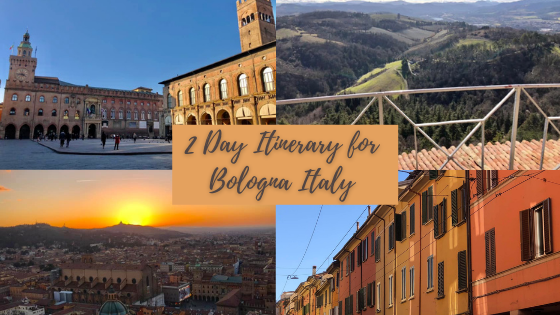
2 Day Itinerary for Bologna Italy
I went to Bologna a couple weeks ago for my first time. I loved this city and want to share my 2-day itinerary for Bologna, Italy! If you would like to see the best of Bologna within two full days, this post is for you!
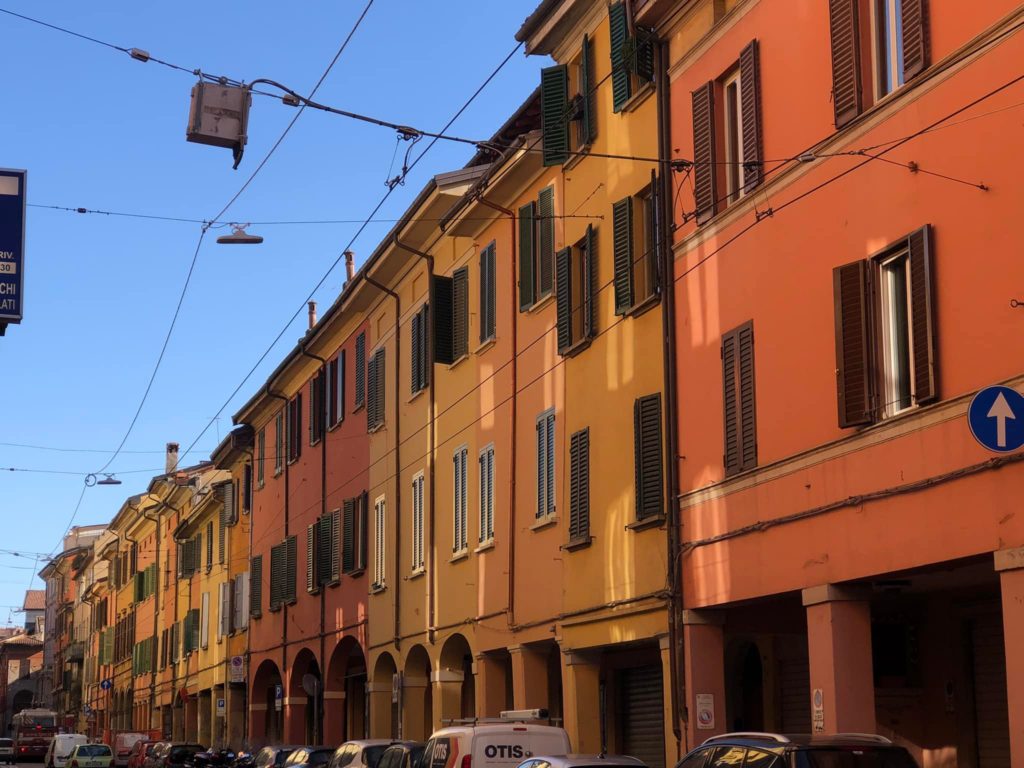
I went with a girlfriend to Bologna on the train from Switzerland where we live. With the cold weather in February, we were looking for a quick get-away to somewhere warmer. Neither of us had been to this Italian city, so it made for a perfect girls’ trip. We arrived on a Wednesday and came back on a Friday evening. We covered a lot of ground in three days but I think this itinerary could be done in two full days.
Sanctuary of the Madonna of San Luca
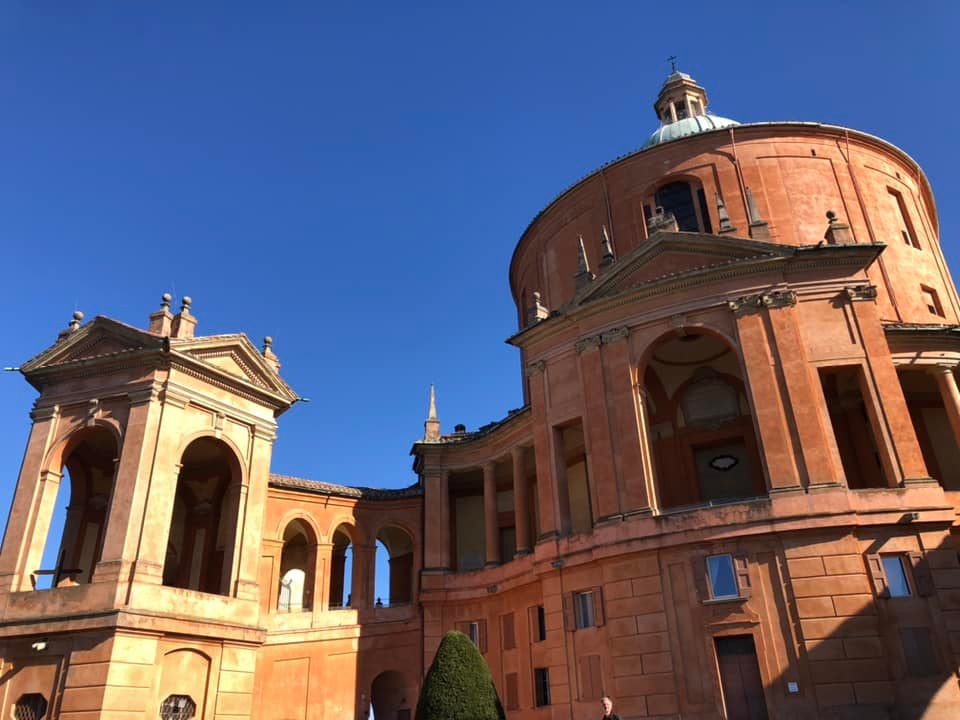
Our favorite two activities in Bologna got us high above the city. The first must-do for your itinerary is to go to the Sanctuary of the Madonna of San Luca. If you are in good fitness shape, you can walk up the 4-kilometer path through the longest portico in the world.
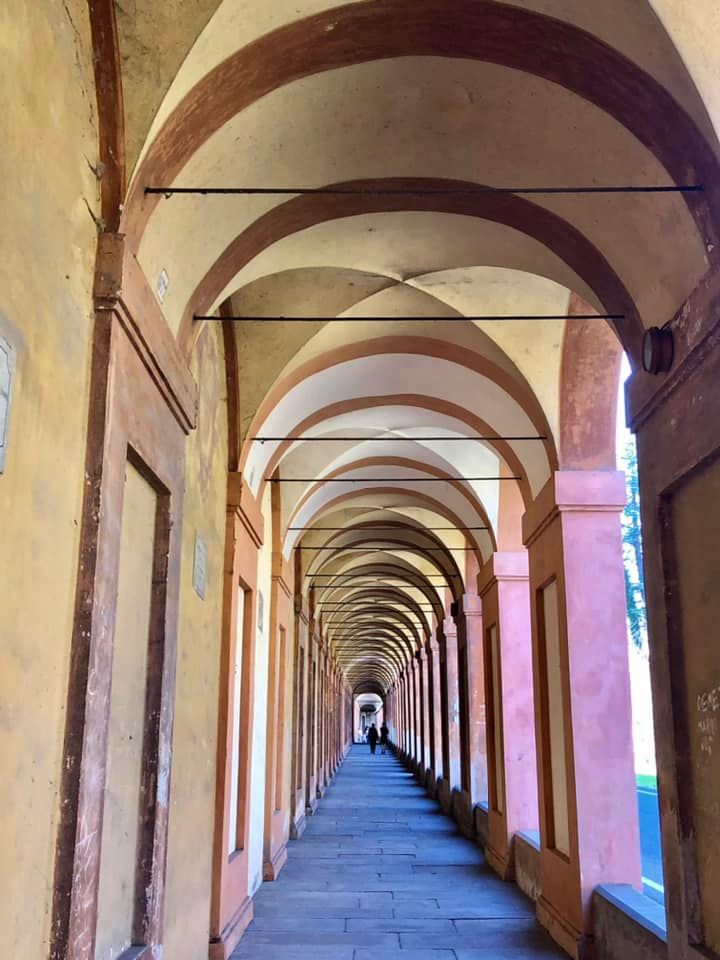
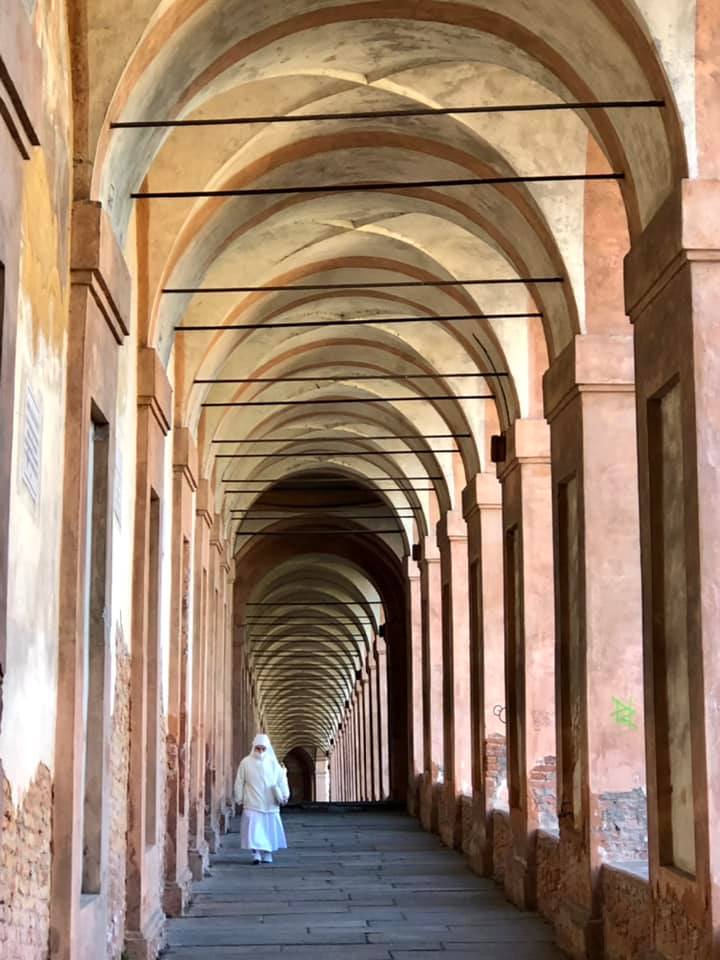
A portico is a porch or walkway with a roof supported by columns, usually attached to a building. Bologna has approximately 62 kilometers of porticos, with 40 kilometers within the city center. You will see them everywhere you go. These porticos are considered a UNESCO world heritage site.
The portico leading to San Luca contains 664 arches and was completed in 1721. It was amazingly beautiful to see this. Be sure to go early in the day when it’s not too hot, even in February.
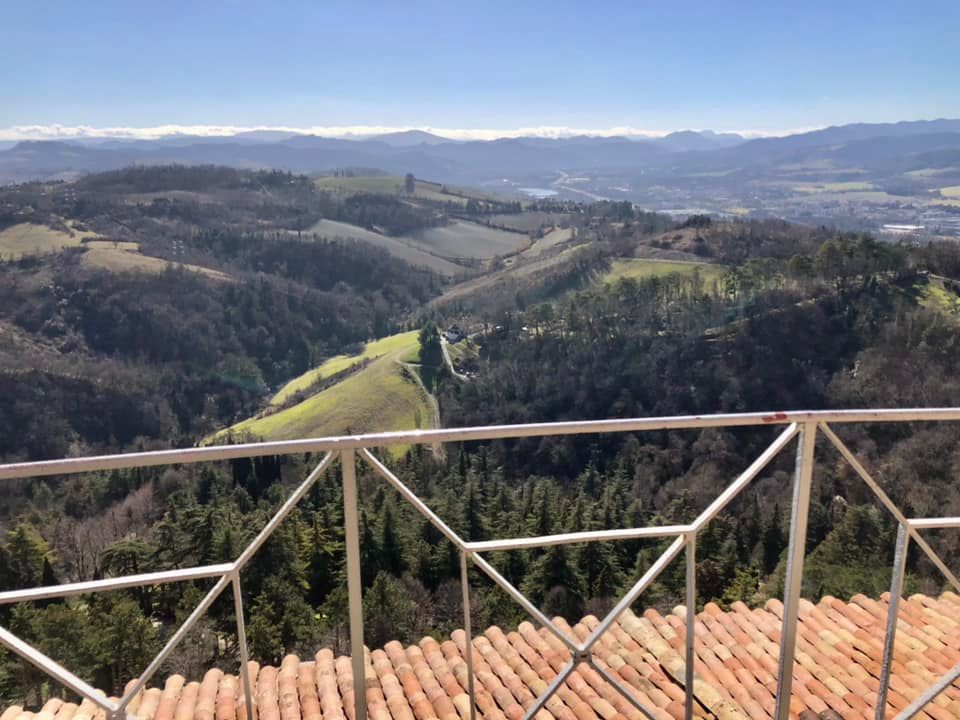
Upon arriving at the top, we were fascinated to see the gorgeous San Luca sanctuary. The church was built in 1194. You can go inside for free, but if you want a bigger thrill, pay the 5 euros to climb the 100-step spiral stairway to the top of the dome. You will get an impressive 180-degree view of the city and surrounding hillsides and distant mountains.
Asinelli Tower
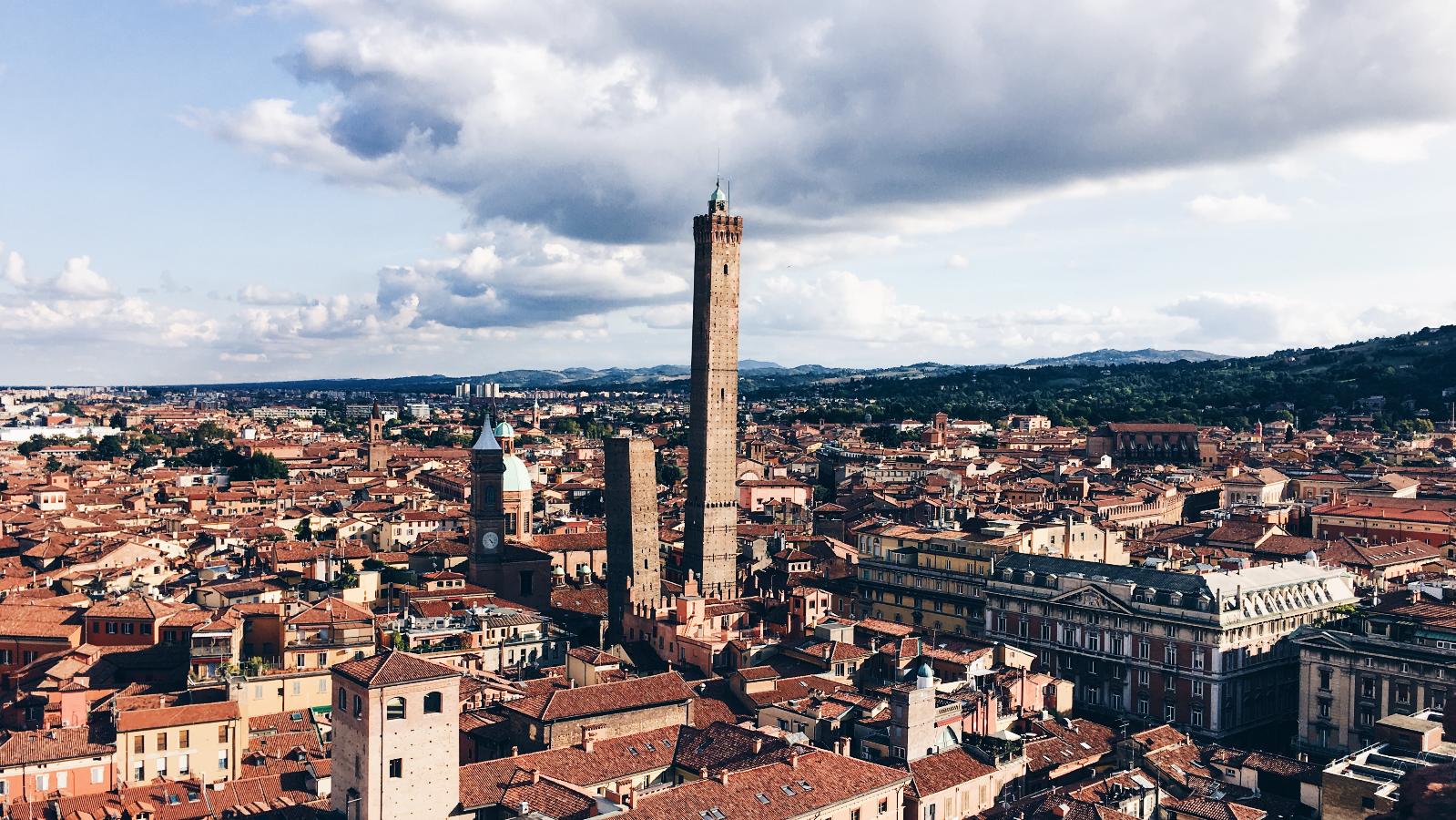
The second best activity was climbing to the top of the Asinelli Tower. Bologna has many towers all over the city (24 remaining from the original 100), but the most famous are the two in the center, called the Two Towers. Both of the towers lean. The shorter Garisenda tower is 48 meters (157 feet) and leans more than the Pisa tower, 4 degrees compared to 3.97 degrees. The names of the towers come from the families who are credited with the construction between 1109 and 1119.

Tourists can walk up the 498 steps of the 97.2 meter (319 ft) Asinelli tower. If you time it right like we did, plan your trip at sunset for a 360-degree jaw-dropping view. We booked our tickets online just a couple hours beforehand. You have to get tickets in advance either online or from the tourist information center.
They let only so many people enter the tower within a given time range, every 45 minutes. It seemed like a long hike to reach the top, but they had several platforms to stop and rest if needed. If you get vertigo or are afraid of heights, this activity might not be for you.
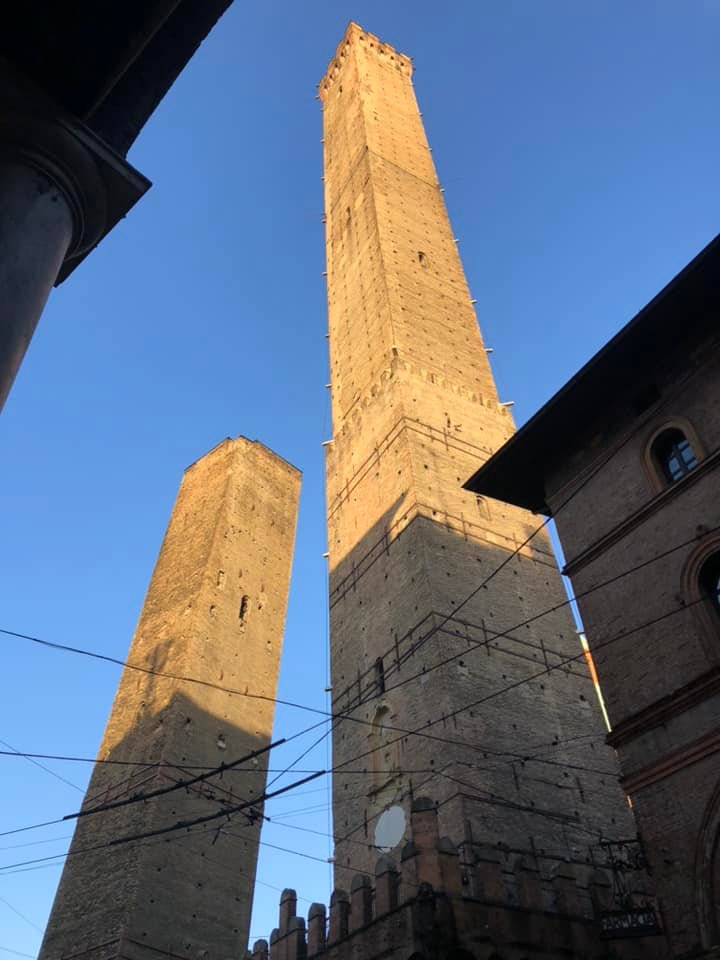
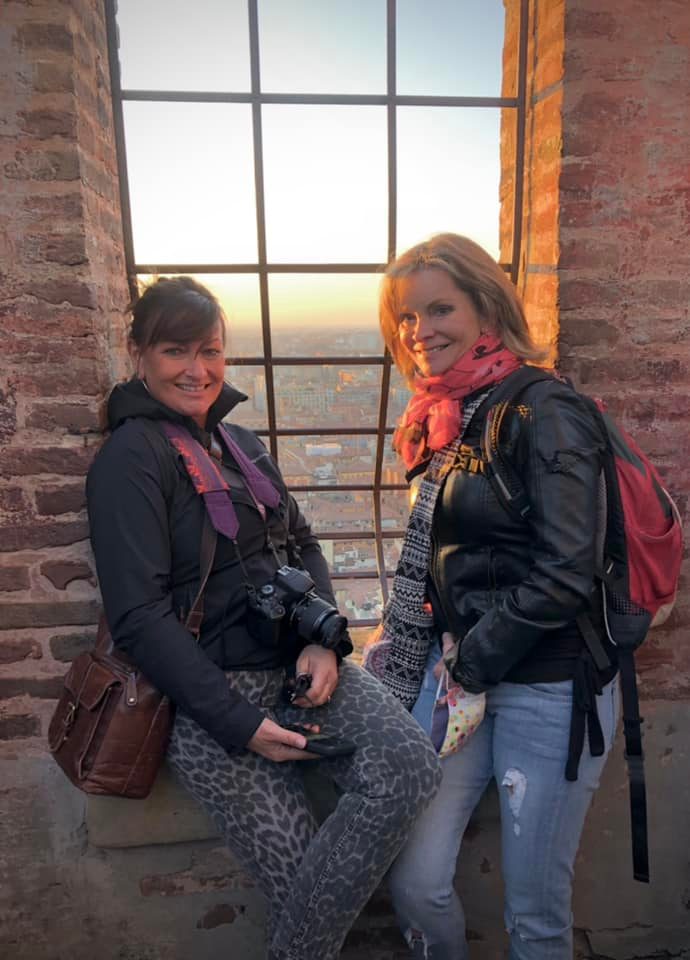
Finestrella di Via Piella (Water Canal)
I had read up on this typical tourist activity of visiting the canals in Bologna and especially the small window opening to see the canal. It was worth the small detour from the center to see this area of the city. It looks a lot like Venice.

The history behind the canals is that in the 12th century, more than 37 miles of canals were built between the city’s main rivers. The canals were used for manufacturing and trade, especially silk. Over the centuries, the canals were covered with roads and parking lots.
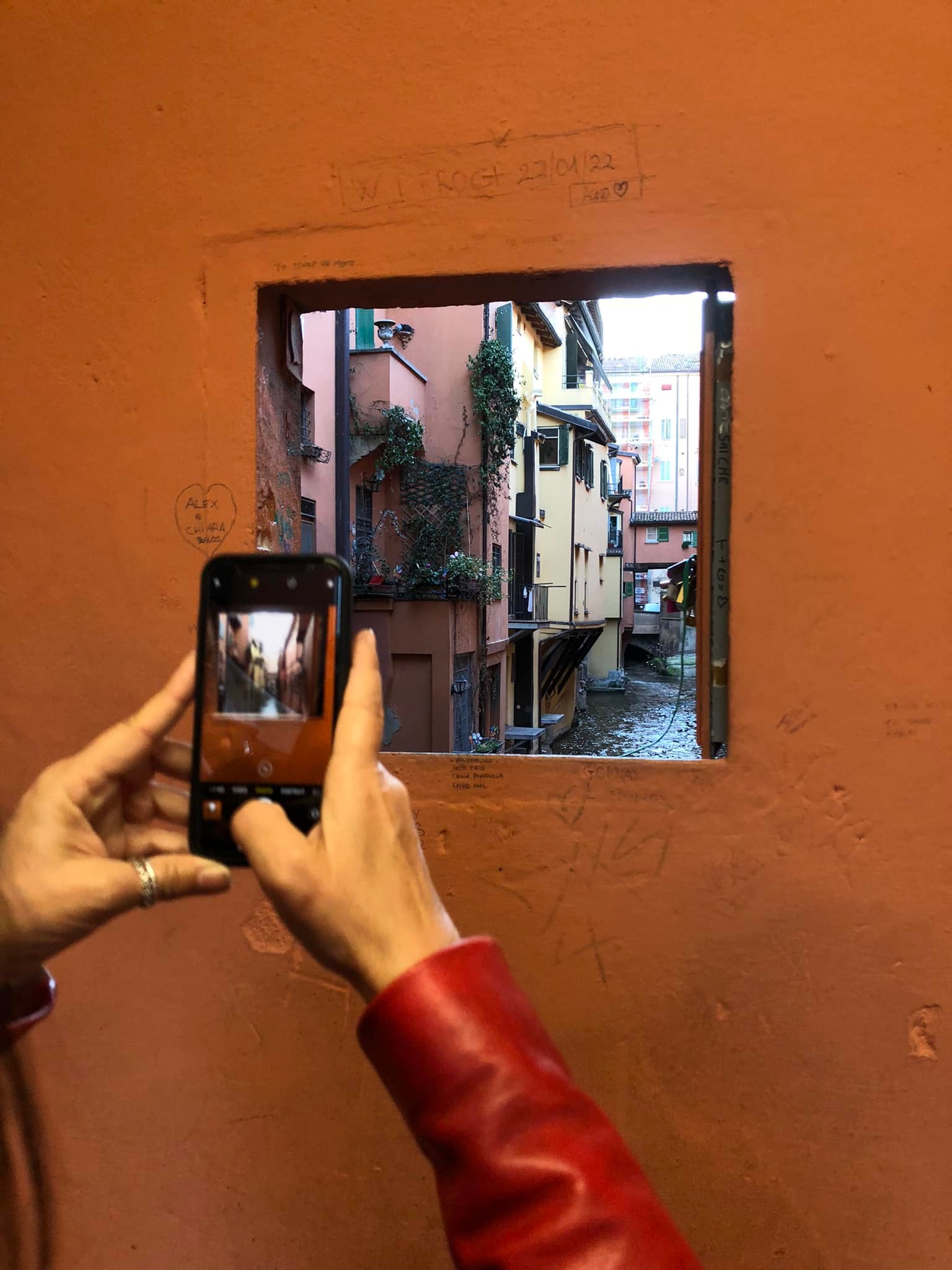
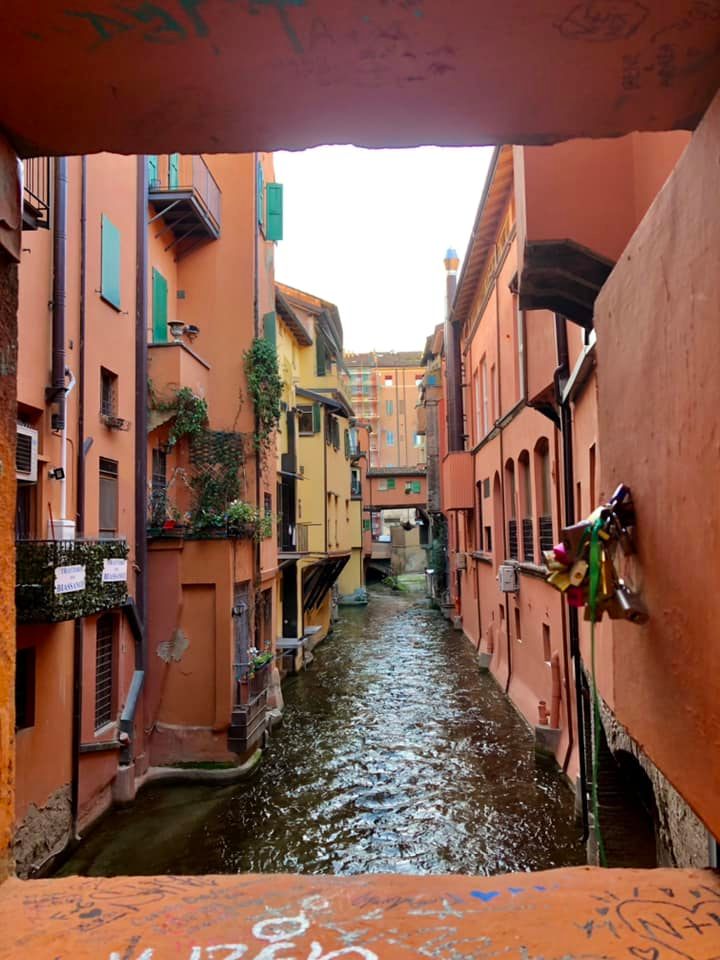
An uncovered part of the canal network provided the small canal window on the street called ‘Via Piella’. It was hard for us to find the discreetly hidden window and we finally had to ask some locals. It’s a classic instagram photo or video showing the opening of the window to this secret canal. My friend even bought a lock and attached it to the window to commemorate her love for her husband. She took photos and framed them for a sweet Valentine’s Day gift to him.
Piazza Maggiore (Main Square)
A favorite spot of ours that we enjoyed everyday was the picturesque Piazza Maggiore. You will find many lovely medieval buildings around the square including the Accursi Tower, also known as the Clock Tower.
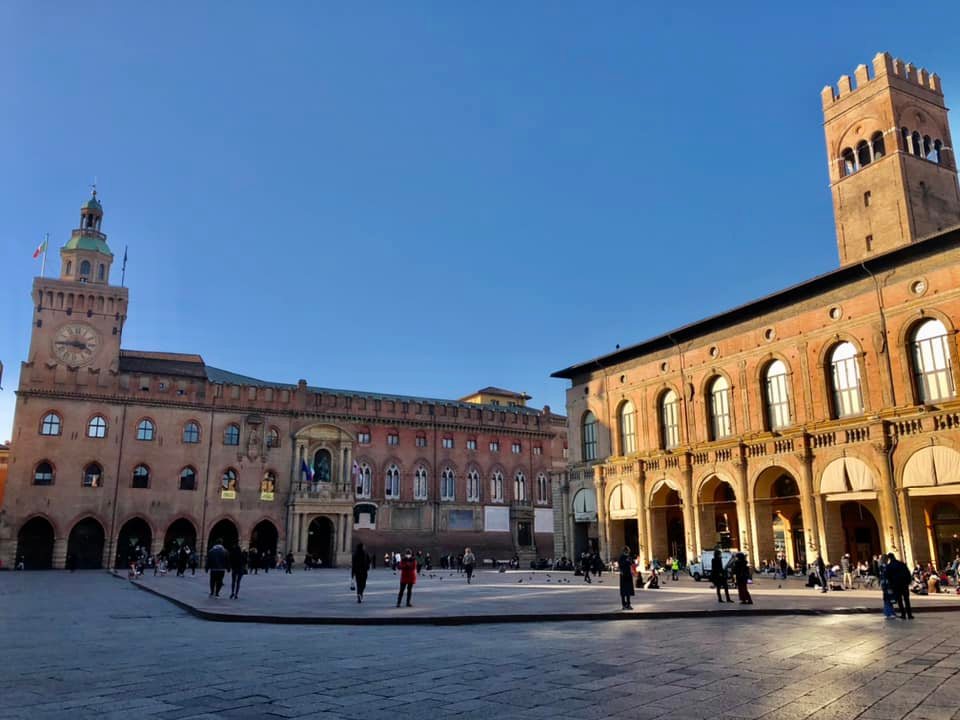
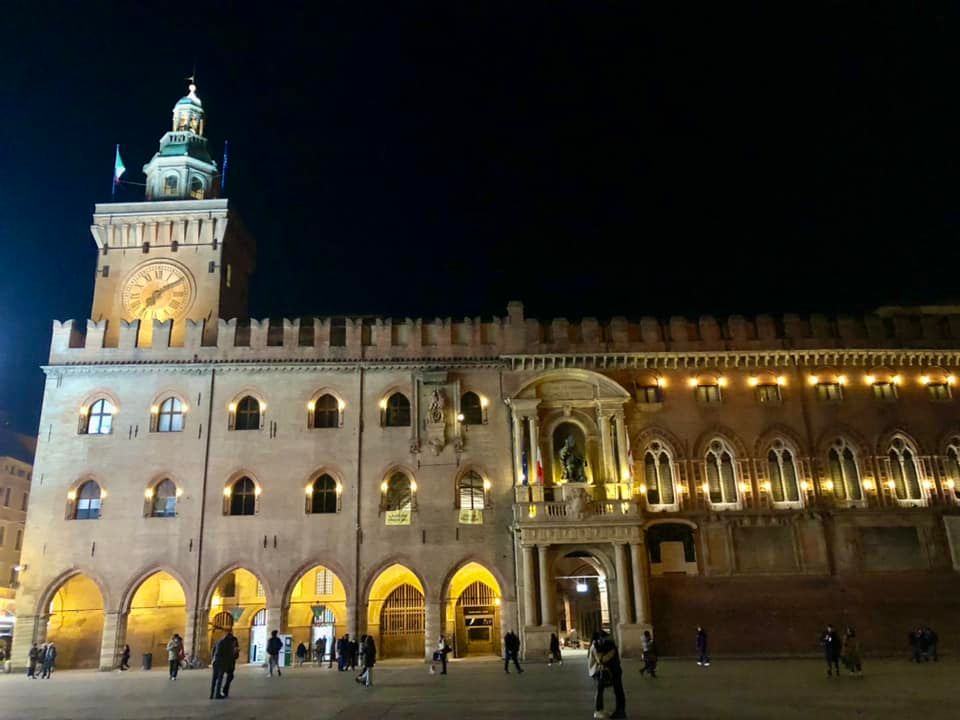
Fountain of Neptune (Fontana del Nettuno)
The Fountain of Neptune is located near the Piazza Maggiore. It’s nice to see it by day but more spectacular at night. The Fountain of Neptune is one of Bologna’s most famous landmarks. The statue of Neptune is almost four meters tall and weighs 2,200 kilograms.
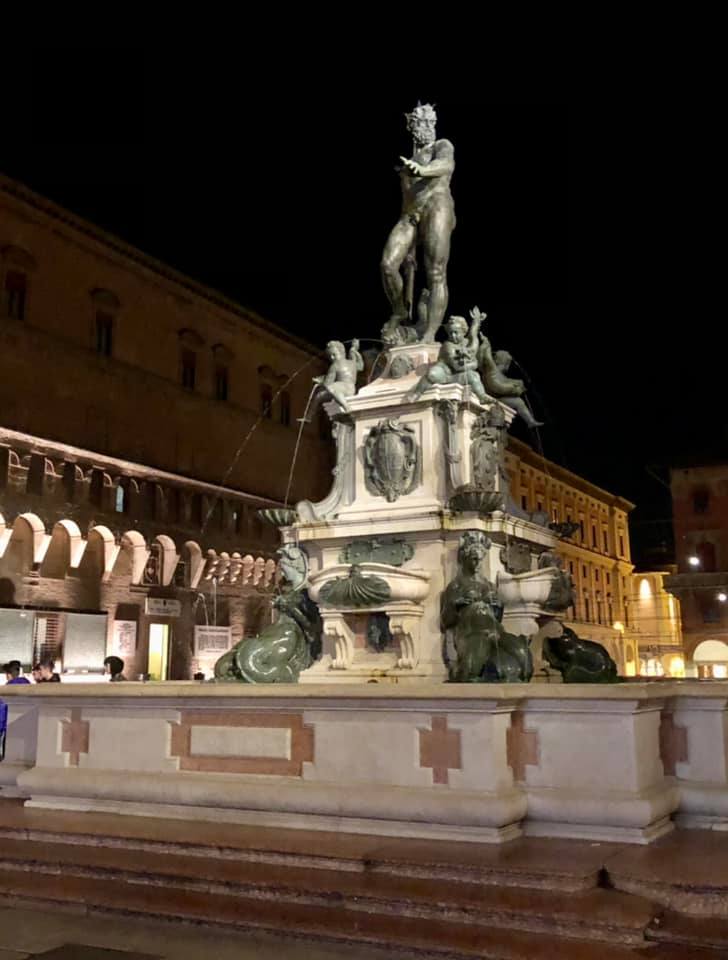
For almost 300 years Bologna was controlled by the Pope. The Neptune statue has a deep relationship with the head of the Catholic Church. In 1563 Pio IV became Pope. To enforce his power over Bologna and take back the reins of the city, he conceived the symbol of an imposing God. The Fountain of Neptune was erected between 1564 and 1566. The Neptune statue shows his left hand calming the waters beneath him in an effort to control the rebel Bolognese people and bring water to the city.
Basilica of San Petronio
This church located in the Piazza Maggiore is the largest and most important in Bologna. It is the sixth largest basilica in Europe measuring 132 meters long, 60 meters wide, and 45 meters high. The basilica is dedicated to the patron saint of the city, Saint Petronius, who was the bishop of Bologna in the fifth century.


The basilica construction started in 1390 by the architect Antonio di Vincenzo. Work on the building continued for centuries, and in 1514, a second project was planned to extend the size to 224 meters long and 150 meters wide. This extension would make the church bigger than St. Peter’s Basilica in Rome. Legend says that Pope Pius IV and the Catholic Church blocked the project. To this day, the façade remains unfinished and is only partly covered in marble on the bottom with bricks on the top portion.
Food in Bologna
From food markets to restaurants to gelato stands, you will find plenty of delicious options in Bologna. I found the Quadrilatero food market to be the most photogenic. You walk through cobblestone streets just off the Piazza Maggiore and see displays of all sorts of fruit, vegetables, and fish.

We had heard good things about the Mercato de Elba, so we managed to find this market and check it out. It was a nice building with many food stands, but it didn’t ‘wow’ us.
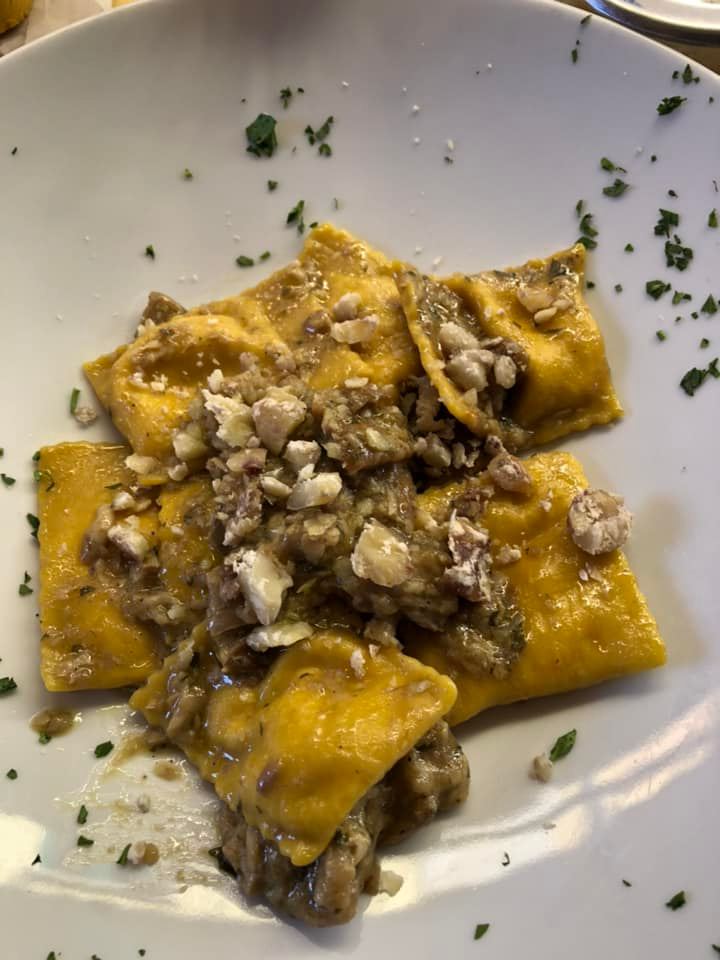
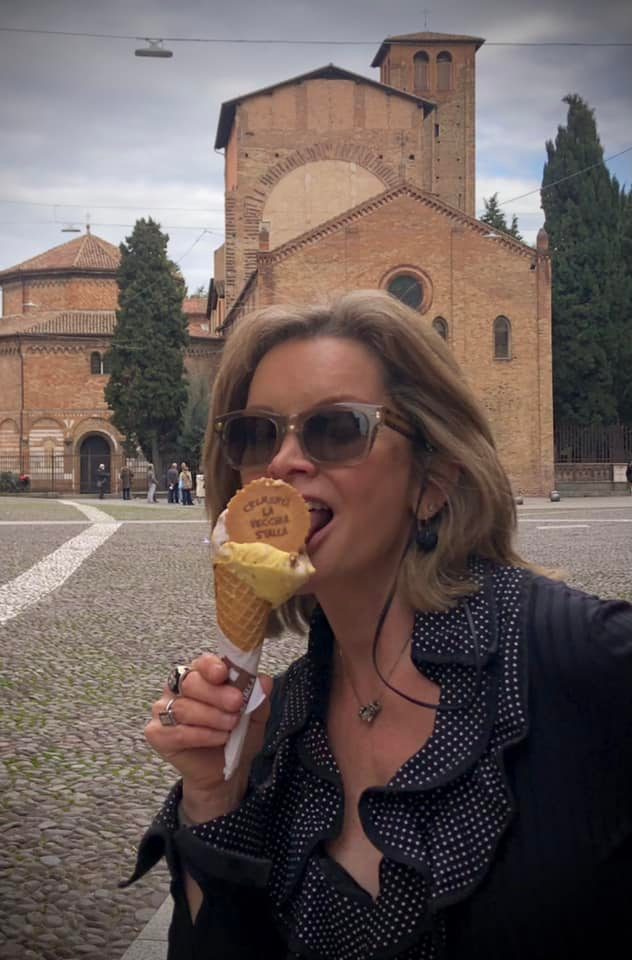
As far as traditional dishes to try, the signature pasta of Bologna is tortellini or lasagne. I had tortellini twice and enjoyed it. The best pasta dish for me was a ravioli stuffed with vegetable ricotta and flavored pumpkin with nutmeg and cream of mushrooms and chestnuts (shown above). It was out of this world! You will find the food reasonably priced in Bologna. We paid 12-15 euros for a pasta dish.
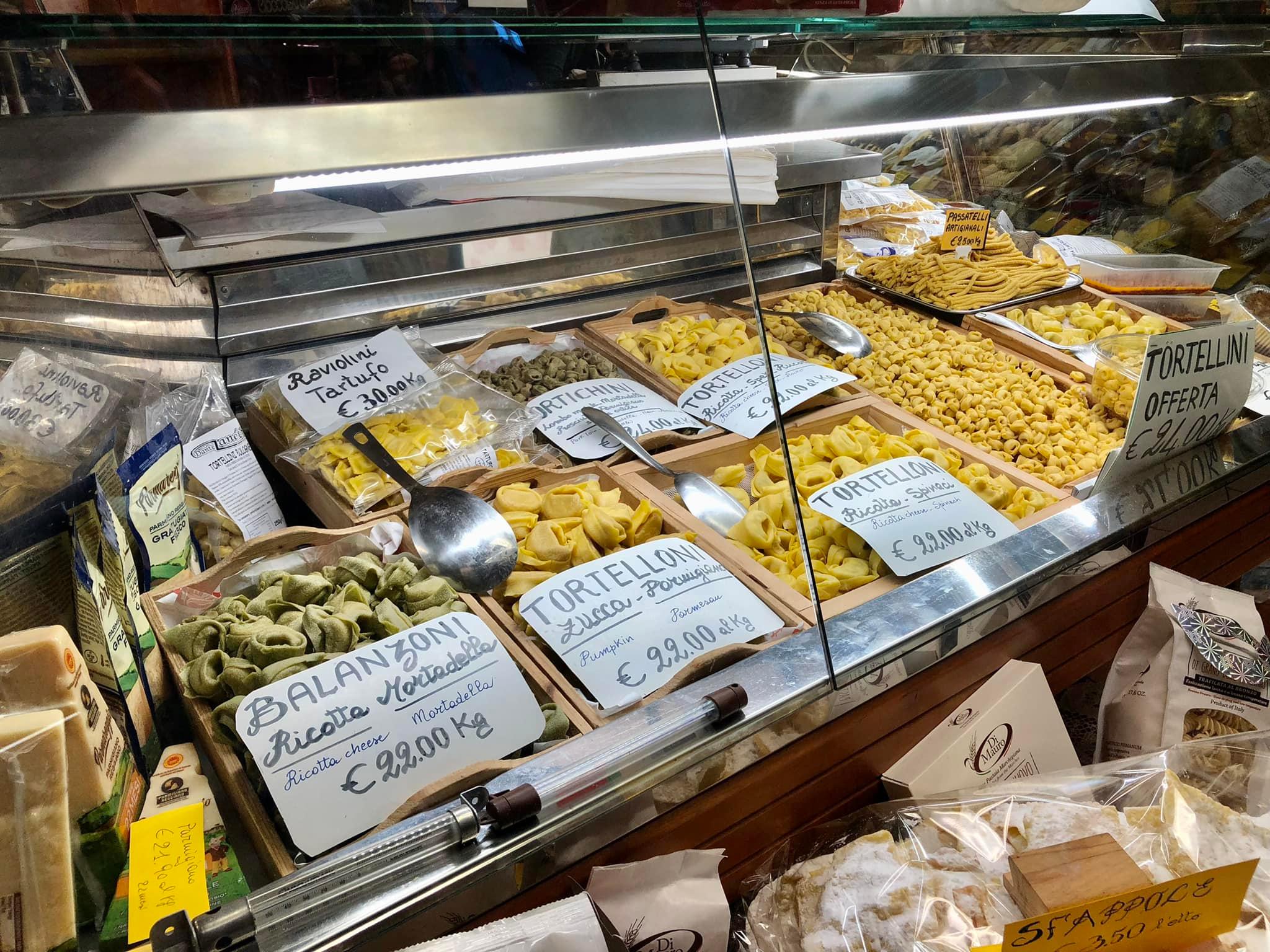
One advice is to stay away from the restaurants in the main tourist areas. We tried an outside restaurant the first day and were a bit disappointed. One of the best restaurants we went to (and ate outside in the narrow alley) was called Zerocinquantello.
When in Italy, one must certainly have a gelato! I had a gelato on my last day, mainly for amusing photos in front of the Saint Stephen church. I’m not a huge ice cream fan, but the gelatos are very tasty.
The Archiginnasio of Bologna
We met two gals from Holland one night at dinner and they recommended us to visit the the Archiginnasio of Bologna. It is one of the most important buildings in the city of Bologna and once the main building of the University of Bologna, which is the world’s oldest university founded in 1088.
It currently houses the Archiginnasio Municipal Library and the Anatomical Theatre. We paid a small fee of a few euros to have access to these two historical rooms.
The Anatomical Theater of the Archiginnasio was built in 1636 and used for anatomy lessons to teach medical students how to operate.
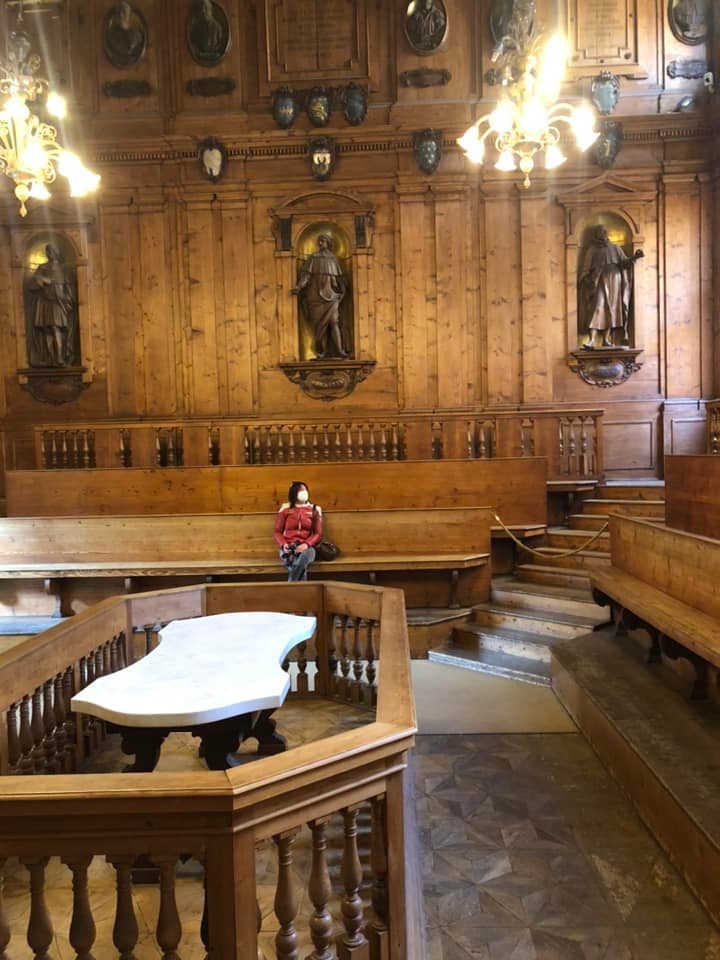
The Archiginnasio Municipal Library contains a section of the building to preserve the books collected from the closure of the religious orders made by Napoleon. The library contains 850,000 volumes and pamphlets from the 16th century.
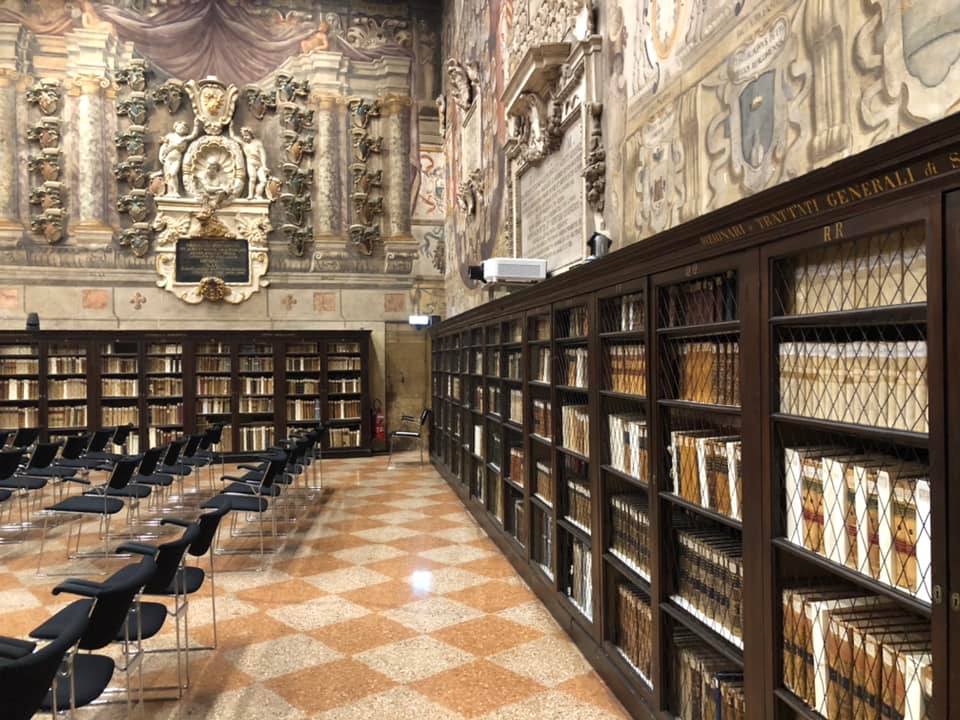
Summary of 2 Day Itinerary for Bologna Italy
I hope you found this 2 Day Itinerary for Bologna Italy interesting. If you enjoy museums, I’m sure you could spend more than two days in this city. I fell in love with Bologna, its porticos, small alleys, and colorful buildings.
If you are looking for assistance to plan your next trip, I am here for YOU! I love to plan travel itineraries for myself and others. For more details on how I provide this service, please check out my Itinerary Planning page and drop me a quick email at jan@janadventures.com to get started!


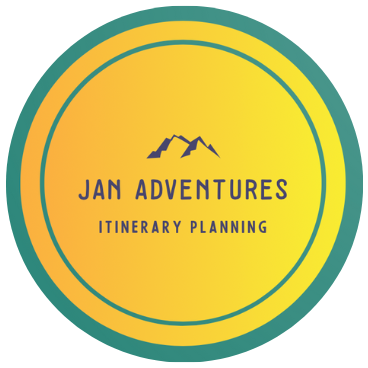
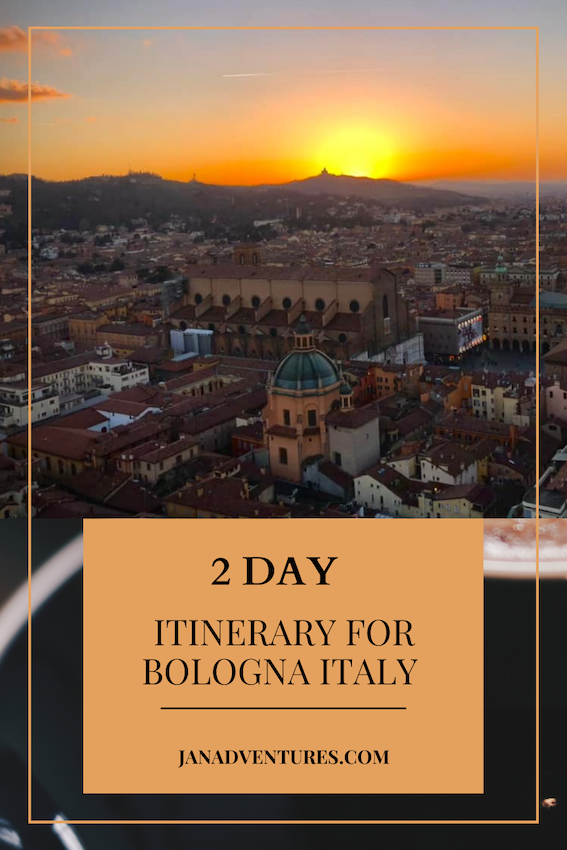
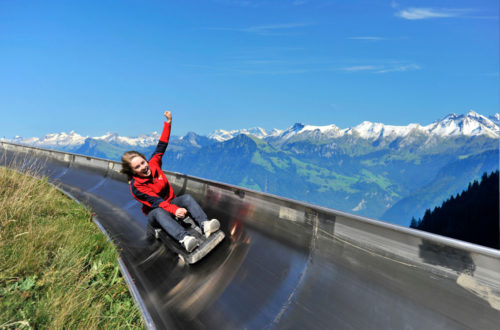
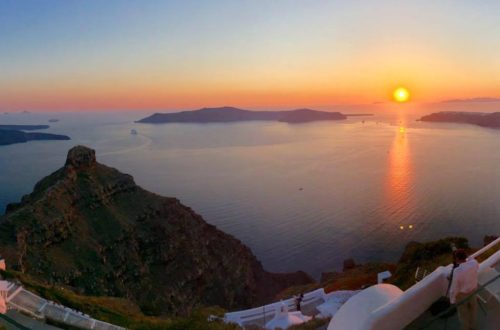
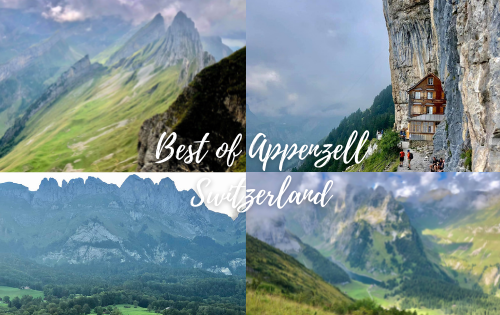
7 Comments
Cindy Moore
I’ve visited Italy but I’ve not been to Bologna. I’d love to explore here. It looks beautiful!
Lisa, Casey, Barrett Dog
Amazing pictures! We felt like we were there with you!
Sabrina DeWalt
I love the spectacular architecture!
Katie
So beautiful! Also, love how you included pasta and gelato- a must!
Danielle
Ever since I taught my sixth graders about ancient Rome, I’ve wanted to visit Italy! The pics look fantastic!
Barbara
How fun! LOVE IT! Such a beautiful place to visit!
Megan
The basilica looks incredible. What a fun trip with your friend!